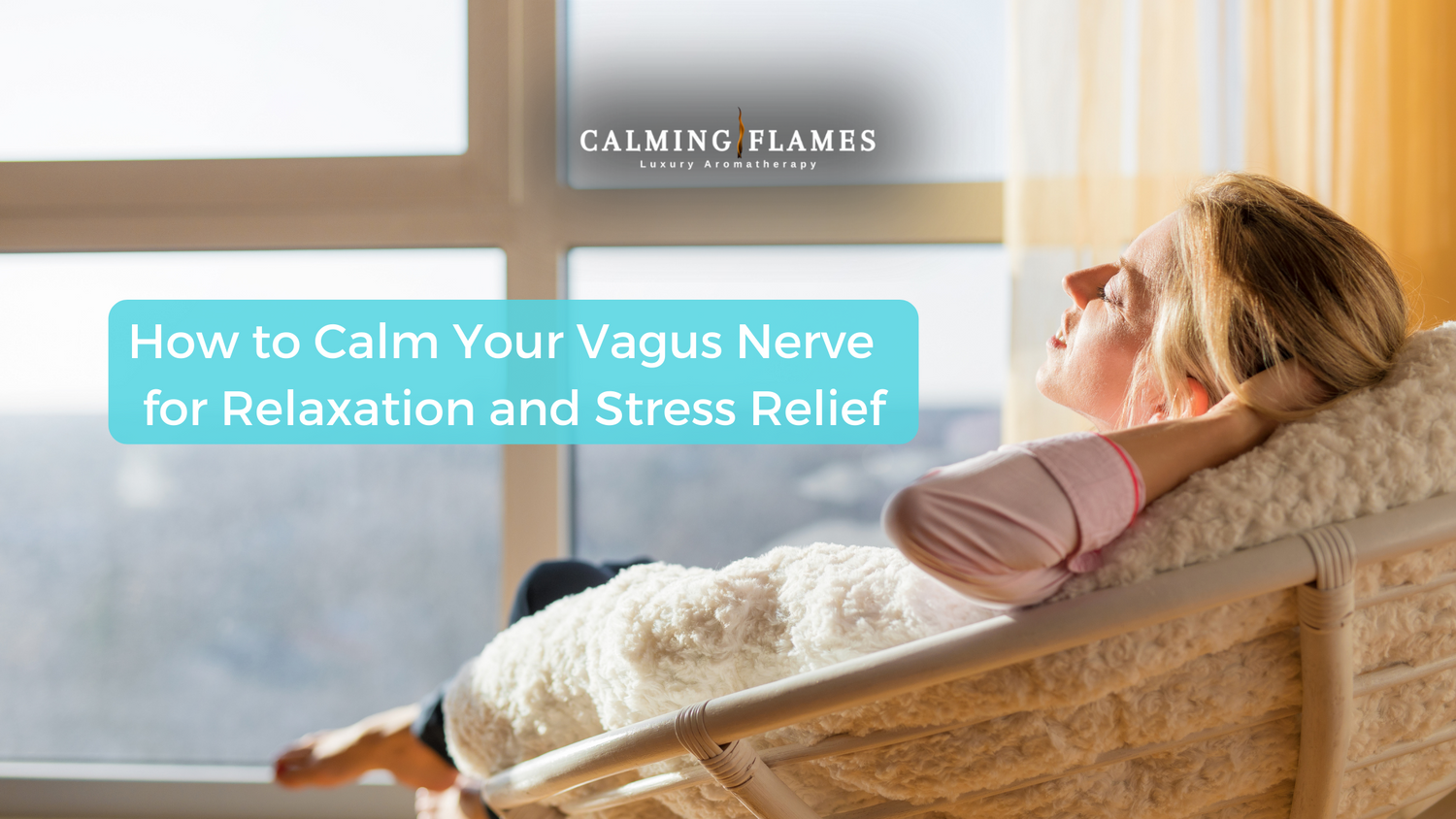Understanding the Vagus Nerve: What is it and How Does it Impact Your Well-being?
The vagus nerve is a crucial component of the parasympathetic nervous system, responsible for regulating various bodily functions and influencing overall well-being. This long wandering nerve plays a significant role in the mind-body connection, affecting everything from digestion to heart rate.
Vagus nerve stimulation has been shown to have numerous benefits, including promoting relaxation, reducing stress and anxiety levels, and improving overall mood. By activating this nerve through techniques such as deep breathing exercises, meditation, or even cold exposure, individuals can experience a sense of calm and well-being.
Understanding the vagus nerve's function and learning how to effectively stimulate it can have profound effects on mental health and physical well-being. By incorporating practices that support vagal tone into your daily routine, you can enhance your body's ability to relax, unwind, and improve resilience to stressors.
Top Techniques to Activate Your Vagus Nerve for Instant Calmness and Relaxation
Activating your vagus nerve can have a profound impact on your overall well-being, helping you achieve instant calmness and relaxation. By incorporating specific techniques into your daily routine, you can effectively stimulate this important nerve and reap the benefits it offers.
1. **Deep Breathing Exercises**: One of the most effective ways to activate your vagus nerve is through deep breathing. By taking slow, deep breaths in through your nose and out through your nose, you can signal to your body that it is time to relax. This simple technique can help reduce stress and anxiety levels almost instantly.
2. **Vagus Nerve Meditation**: Mindfulness meditation practices that focus on deepening awareness of bodily sensations and breathing patterns can also stimulate the vagus nerve. By bringing attention to the present moment and fostering a sense of calmness, you can activate this crucial nerve and promote relaxation.
3. **Vagal Maneuvers**: Certain physical movements known as vagal maneuvers can directly stimulate the vagus nerve. These include techniques like gagging, coughing, or using cold water on your face. While these maneuvers may seem unconventional, they can be effective in triggering the relaxation response associated with vagal activation.
4. **Yoga Poses**: Practicing certain yoga poses such as child's pose, cat-cow stretch, or legs-up-the-wall pose can gently stimulate the vagus nerve by engaging specific areas of the body connected to this vital pathway. Incorporating these poses into your yoga practice can help promote feelings of calmness and relaxation.
By incorporating these top techniques into your daily routine, you can effectively activate your vagus nerve and experience instant calmness and relaxation whenever needed. Whether through deep breathing exercises, mindfulness meditation, vagal maneuvers, or yoga poses, there are various ways to harness the power of this important nerve for improved well-being.
The Connection Between Vagus Nerve and Mental Health: How Calming the Nerve Can Improve Your Mood
The vagus nerve plays a crucial role in regulating our body's response to stress and emotions. It is the longest cranial nerve in the body and acts as a communication highway between the brain and various organs, including the heart, lungs, and digestive system.
Research has shown that stimulating the vagus nerve can have a calming effect on both the mind and body. By activating this nerve, individuals may experience relief from symptoms of anxiety and depression. This connection between vagus nerve stimulation and mental health has gained attention in recent years as a potential natural intervention for mood disorders.
Various techniques can help stimulate the vagus nerve, such as deep breathing exercises, meditation, yoga, and even certain types of physical activity like cold exposure. These practices can help activate the parasympathetic nervous system, which is responsible for promoting relaxation and reducing stress.
Incorporating activities that target vagus nerve stimulation into your daily routine may contribute to overall well-being by helping to regulate mood, reduce anxiety levels, and improve resilience to stress. It's important to consult with a healthcare professional before trying any new techniques or interventions related to vagus nerve stimulation for mental health purposes.
Natural Remedies and Practices to Support Vagus Nerve Health for Long-term Calmness
Natural Remedies and Practices to Support Vagus Nerve Health for Long-term Calmness
Improving vagal tone is essential for overall well-being and long-term calmness. The vagus nerve plays a crucial role in regulating the body's relaxation response, digestion, heart rate, and inflammation levels. Here are some natural remedies and practices to support vagus nerve health:
1. **Deep Breathing:** Engaging in deep breathing exercises such as diaphragmatic breathing or box breathing can help stimulate the vagus nerve and promote relaxation.
2. **Meditation:** Regular meditation practice has been shown to increase vagal tone, leading to reduced stress levels and improved emotional well-being.
3. **Yoga:** Certain yoga poses, especially restorative poses like Child's Pose or Legs Up the Wall, can help activate the parasympathetic nervous system and support vagal tone.
4. **Foods that Support Vagus Nerve:** Including foods rich in omega-3 fatty acids like fatty fish, flaxseeds, and walnuts can help support vagal health. Additionally, consuming probiotic-rich foods like yogurt and kefir can also benefit the gut-brain connection.
5. **Herbs for Vagal Health:** Adaptogenic herbs such as ashwagandha, holy basil (tulsi), and licorice root have calming properties that can support vagal tone and overall nervous system health.
6. **Supplements for Calming the Nervous System:** Magnesium supplements are known for their calming effects on the nervous system and may help improve vagal tone. Consult with a healthcare provider before adding any new supplements to your routine.
By incorporating these natural remedies and practices into your daily routine, you can support your vagus nerve health for long-term calmness and overall well-being.
Incorporating Vagus Nerve Calming Techniques into Your Daily Routine for Overall Well-being
The vagus nerve plays a crucial role in our body's stress response and overall well-being. By incorporating vagal exercises into your daily routine, you can effectively calm your nervous system and promote relaxation. Mindfulness practices are particularly effective in activating the vagus nerve and reducing stress levels.
Practicing deep breathing exercises, such as diaphragmatic breathing, can stimulate the vagus nerve and help regulate your body's response to stress. Taking time each day to engage in mindfulness meditation or yoga can also have a profound impact on calming the nervous system.
In addition to mindfulness practices, simple techniques like humming, singing, or gentle neck massages can activate the vagus nerve and promote relaxation. These activities help improve heart rate variability and enhance overall well-being.
By incorporating these stress management techniques into your daily routine, you can harness the power of the vagus nerve to promote a sense of calm and balance in both body and mind. Prioritizing self-care through these practices is essential for maintaining overall well-being in today's fast-paced world.
Embrace Vagus Nerve Calm as a Key Element of Your Self-care Routine for a Balanced Life
In conclusion, incorporating Vagus Nerve Calm techniques into your self-care routine can significantly contribute to a balanced and harmonious life. By nurturing and activating your vagus nerve, you can enhance your overall well-being and resilience to stress.
Embracing practices such as deep breathing exercises, meditation, yoga, and mindful eating can help stimulate the vagus nerve and promote relaxation responses in the body. These simple yet powerful techniques can be easily integrated into your daily routine, offering a natural way to manage stress and improve emotional regulation.
Remember that self-care is not selfish; it is essential for maintaining a healthy mind-body connection. Prioritizing Vagus Nerve Calm as a key element of your self-care regimen will not only benefit your physical health but also support mental clarity and emotional balance.
Make time for yourself each day to engage in activities that soothe your nervous system and promote inner peace. By embracing Vagus Nerve Calm practices, you are investing in your overall well-being and creating a foundation for a more balanced and fulfilling life.











Leave a comment
All comments are moderated before being published.
This site is protected by hCaptcha and the hCaptcha Privacy Policy and Terms of Service apply.